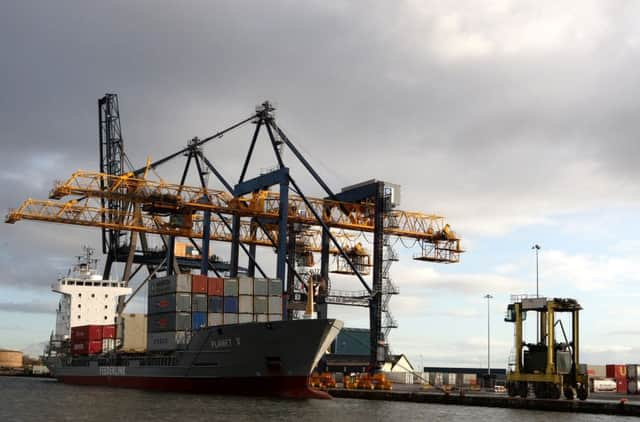Brexit poses '˜significant' questions for Scotland's ports


Additional infrastructure could be required at the country’s busiest ferry terminals if the UK leaves the Customs Union and Single Market without agreements in place, while ports handling the import and export of goods could see traffic affected by tariffs.
The British Ports Association (BPA) this week warned of major disruption on quaysides if a deal is not reached on cross-border environmental health standards.
Advertisement
Hide AdAdvertisement
Hide AdThe trade body is also concerned border inspection posts will need to be installed across the UK port sector if it is to continue trading with the EU.
Transport Scotland officials are working with the sector at both a Scottish and UK wide level on how to deal with uncertainties thrown up by the decision to leave the European Union.
“Brexit raises significant questions for the Scottish maritime economy,” a spokesman told The Scotsman. “The decisions to be made over the coming months and years could have major implications for Scotland’s role as a significant trading nation.
“Ports are crucial gateways, supporting many of our vital industries. The ease and speed with which freight passes through ports must be fully protected under future arrangements.
“Officials will to continue to engage with the industry to emphasise the importance of the maritime industry to Scotland’s economy, and to explore opportunities and challenges for investment and jobs growth in the industry with particular focus on the Brexit issue.”
Grangemouth is Scotland’s busiest container port, handling in excess of 155,000 containers per anum, with frequent daily sailings to Rotterdam, Antwerp, Felixstowe and Hamburg.
Most of the major lines utilise these feeder services to link with mother container vessels plying between the world’s major ports.
Grangemouth is owned by Forth Ports, the Edinburgh-based firm which also manages the dock facilities at Leith, Burntisland and Rosyth.
Advertisement
Hide AdAdvertisement
Hide AdChief executive Charles Hammond told The Scotsman that Forth Ports was “adept” at tackling complex business challenges, adding that uncertainties around Brexit had not stopped the company from investing in its ports.
He said: “What we can be certain of with Brexit is that we are an island nation and we are always going to have to move goods through our ports.
“The (UK) Government has highlighted the desirability of trusted trader schemes in a recent position paper on customs and in their white paper on the UK’s customs arrangements post Brexit. We are currently working towards achieving Authorised Economic Operator status for our Scottish ports which will put us on the front foot.”
MSP Ross Greer, the Green’s Europe spokesman, said a separate deal which ensured Northern Ireland remained in the Customs Union could have a negative impact on Scotland’s west coast.
“If the Tories insist on a policy of leaving the Customs Union, then it’s likely that Northern Ireland will remain in to avoid the return of a hard border on the island of Ireland,” he said. “The consequences of that for Scotland, and our west coast in particular, would be massive.
“The likes of Cairnryan and potentially Ardrossan and other ports would become customs borders overnight. That would require enormous amounts of additional infrastructure, both physical and digital.”
